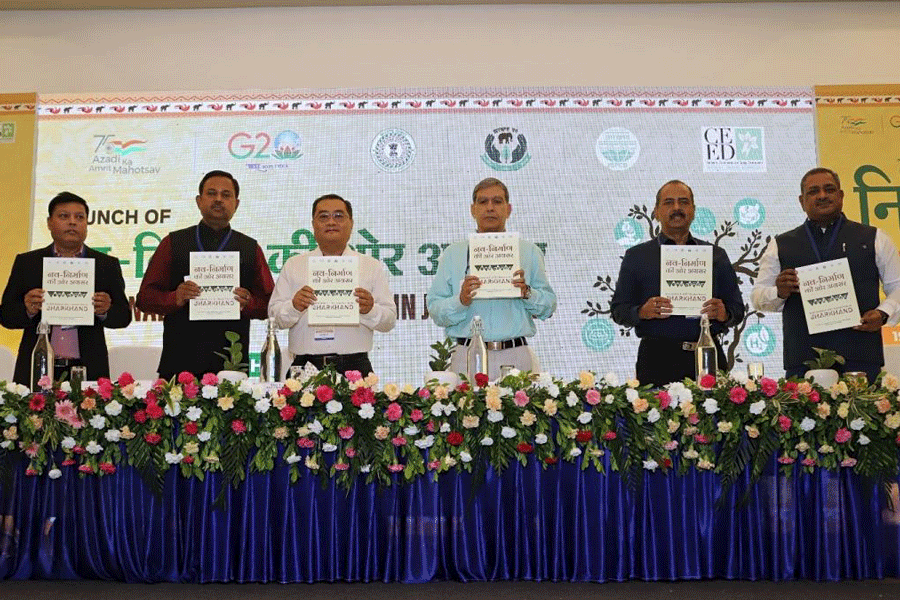Jharkhand unveiled a vision document for a strategic approach to the sustainable transition process to take the state on a pathway of low-carbon and climate-resilient economy.
The vision document named Nav-Nirman Ki Ore Agrasar (on the way to a new beginning) was unveiled by Jharkhand chief secretary Sukhdev Singh in the presence of a host of senior bureaucrats of the state and the Centre in Ranchi on Wednesday.
The document outlines the strategic approach to the sustainable transition process and intends to lay the foundation of the low-carbon development pathways for the state.
“It is a ground-breaking initiative in our policy planning, as we set out on a transformative path towards sustainable development. The state government believes that no one should be left behind in the sustainable transition. We aim to support India’s leadership in addressing energy security and socio-economic interests by forging a convergence of efforts towards a carbon-neutral and climate-resilient economy at both the national and state levels,” said Singh.
Coal ministry secretary Amrit Lal Meena, who virtually addressed the conference, said: “Jharkhand has become a role model for other states by showcasing sustainable transition strategies. The state government and the task force on sustainable transition need to be congratulated for this pioneering initiative. The energy transition is vital for a low-carbon economy, with coal’s role remaining significant in future. We wholeheartedly support the state’s journey towards sustainable energy transition pathways.”
The vision for the sustainable transition is guided by India’s ambitions towards a low-carbon economy and sustainable development goals. The vision document has been prepared through a consultative process and is based on the perspectives from inter-departmental meetings and stakeholders’ consultations.
Elaborating on the broader intent of the vision document, retired Indian Forest Service (IFS) official and chairman of the task force on sustainable just transition, Jharkhand, A.K. Rastogi said: “The vision document follows a structured approach through engaging in bottom-up planning, collaborating with research partners, and drawing inspiration from best practices around the globe.”
“It provides a holistic approach with a focus on thematic areas e.g. livelihood transition, energy transition, decarbonisation pathways, coal transition, sustainable mobility transition, green hydrogen, investment and finance and institutional framework to develop a cross-sectoral roadmap for future-ready Jharkhand. It prioritises people-centric policy interventions and cohesive integration of environmental, social, and economic aspirations in the state,” Rastogi added.











